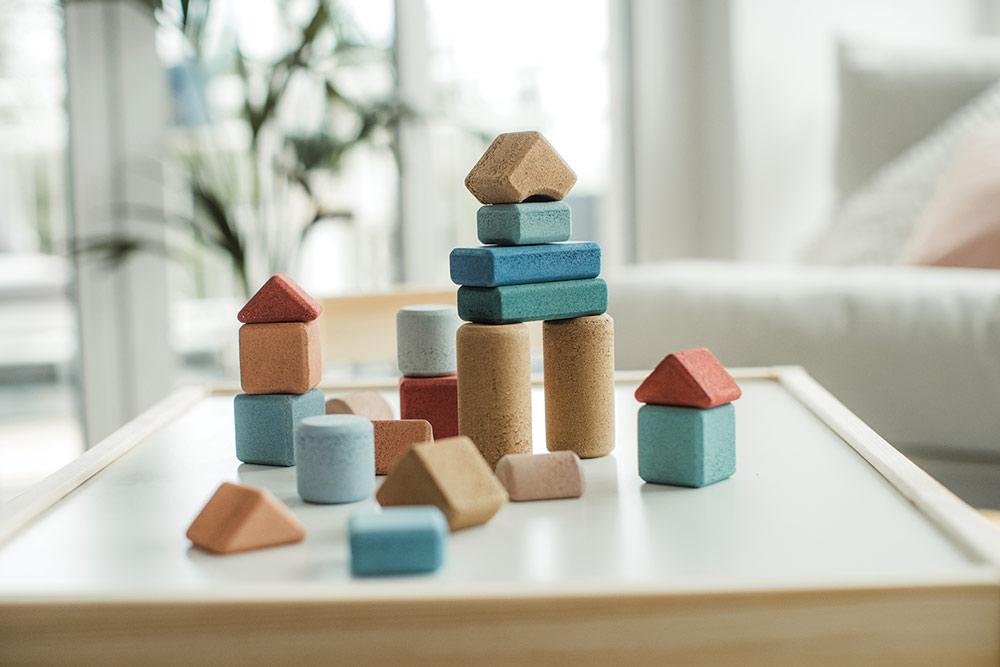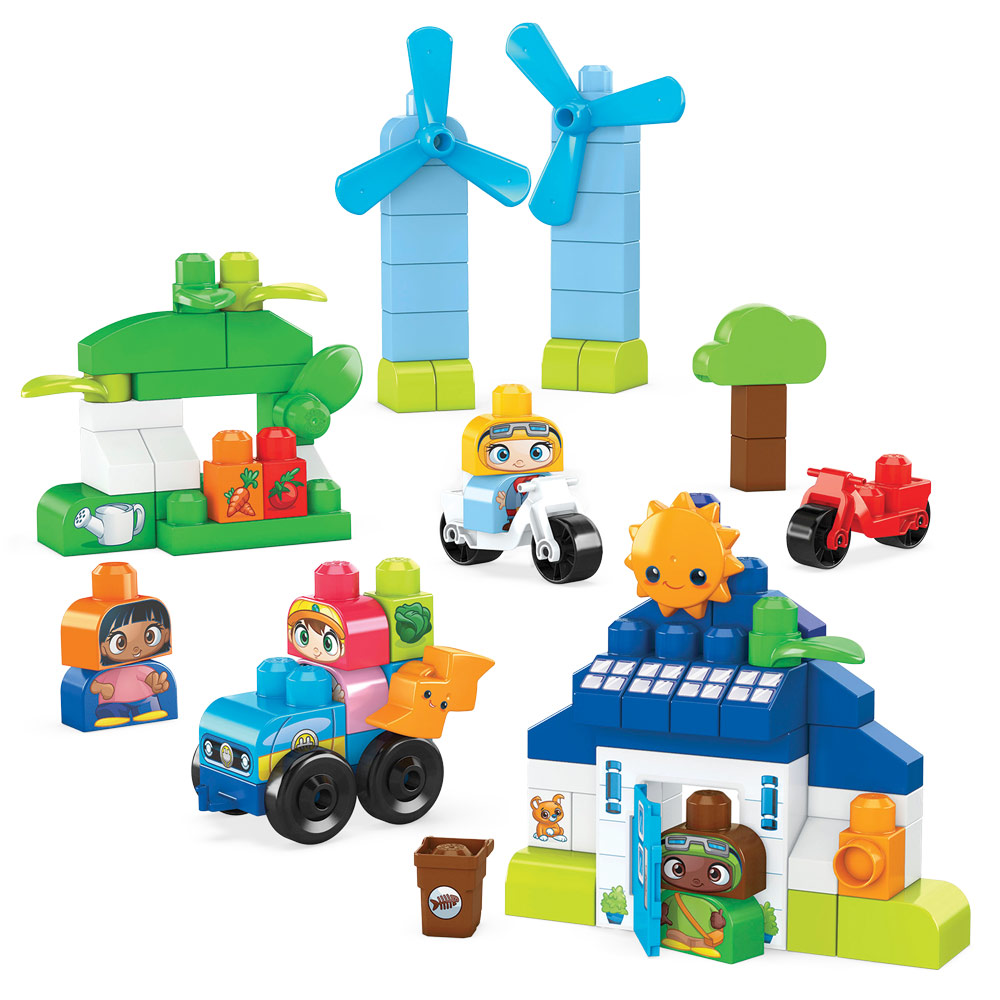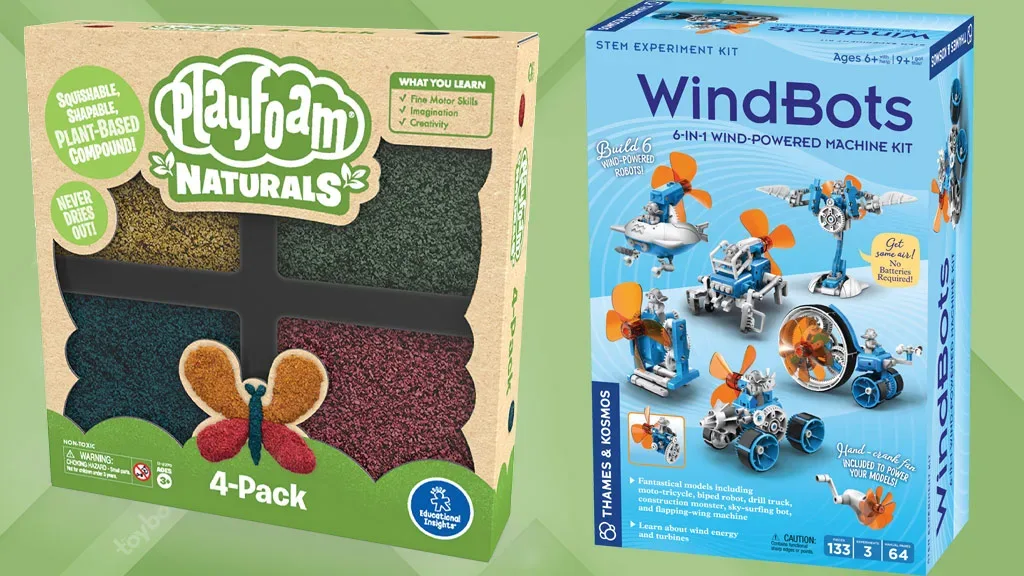by KRISTIN MORENCY GOLDMAN, senior advisor, strategic communications, The Toy Association
This year, the Toy Association named “Toys for Social & Environmental Good” as a top trend, encompassing products that teach kids how to build a happier and healthier tomorrow through play. These items include hands-on toys and games that explore recycling, renewable energy sources, pollution, endangered species, and more.
Tied to this trend, many Association members have been working diligently toward environmental goals by improving the recyclability of their toys, reducing packaging, and utilizing sustainable materials in production and packaging.
“Studies show that the majority of consumers today are committed to reducing their environmental footprint. In fact, a recent Toy Association-commissioned survey revealed that 78% of parents said the sustainability of a toy for their child was important to them,” says Adrienne Appell, executive vice president of marketing and communications at The Toy Association. “Some consumers are even willing to pay a premium for eco-friendly toys and find value in playthings that teach their kids about sustainability. Although we are calling this a trend, it really goes beyond that. Sustainability is here to stay, and the developments we are seeing now point to the future of our industry.”
FIGHTING A PERCEPTION PROBLEM
As the toy community — from manufacturers to retailers, inventors, and everyone in between — continues to make strides in this area, The Toy Association is offering resources to assist members.
“Despite studies indicating that toy packaging accounts for less than 1% of the typical household’s annual waste stream, our industry has a perception issue,” says Alan Kaufman, senior vice president of technical affairs at The Toy Association. “That said, all industries have an obligation to do what they can to reduce their environmental impact, and The Toy Association has developed member tools to assist companies, from a database of packaging and product materials and their associated environmental footprints, to white papers on more sustainable manufacturing.”
Recently, The Toy Association formed an Extended Producer Responsibility Working Group that will begin developing principles for managing recyclable materials. These principles will guide the toy industry in increasing sustainability and navigating the emerging patchwork of state packaging regulations.
The Association also offers members access to the Smart Packaging Initiative (SPI) — a tool that helps companies rate their package designs based on sustainability and benchmark them against others in the industry producing in the same category — as well as members-only issue briefs and guides on environmental sustainability topics.
Members are also encouraged to join the Environmental Sustainability Committee so that they can stay at the forefront of issues related to protecting and preserving the environment.
To learn more, contact Senior Vice President of Technical Affairs Alan Kaufman (akaufman@toyassociation.org).

NEW SUSTAINABLE TOYS
As parents look to reduce their environmental footprint and educate kids about sustainability, they can turn to eco-friendly toys for kids of all ages. Examples include the Wild Science! Climate Change Kit from Learning Advantage, which makes sense of global weather systems and the impact of human activity.
Hape’s Uniche Collective Starter Block Set is made from environmentally friendly cork (harvested from cork oak bark without cutting it down) and contains 20 pieces in eight different shapes, similar to classic wooden building blocks. Playfoam Naturals from Educational Insights also uses sustainable material from cork trees, offering an eco-friendly twist to the popular Playfoam compound.
The WindBots: 6-in-1 Wind-Powered Machine Kit by Thames & Kosmos includes materials for six bots that move without batteries or electricity. A full-color manual guides creators to make a big-wheel tricycle, a quadruped, a soaring machine, a drilling monster, and more.

Just Play’s CoComelon Eco Plush is an environmentally soft toy range that is made with 100% recycled materials — including the fabric, filling, and thread — while staying true to classic CoComelon styling. The packaging is also made from sustainable Forest Stewardship Council-certified cardboard.
Mattel’s MEGA Bloks Green Town Build & Learn Eco House also teaches preschoolers about green behaviors and topics, including renewable energy, playing outdoors, and energy consumption.
The Toy Association is proudly promoting members that are making efforts to go green. Each week, Toy News Tuesday, The Association’s weekly e-newsletter, spotlights a company and its sustainable products or practices. Any company that would like to be included is encouraged to contact Jenn Lynch at jlynch@toyassociation.org.
This article was originally published in the June 2022 edition of the Toy Book. Click here to read the full issue!


